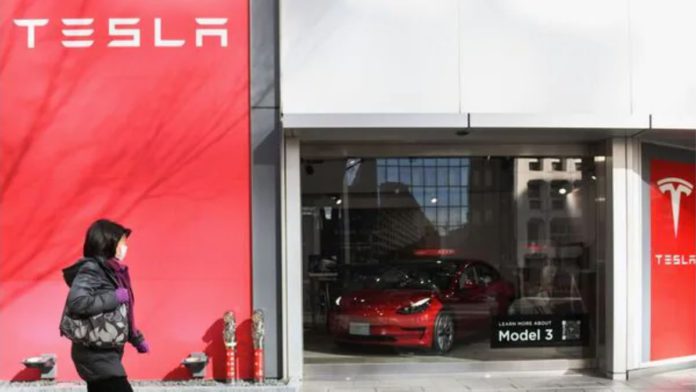The antitrust watchdog in South Korea said it will penalize Tesla 2.85 billion won ($2.2 million) for failing to inform its consumers that their electric vehicles had a reduced range when the temperature is low outside. The alleged infractions of the country’s advertising legislation might be a blow for the US automaker, which is looking to grow its footprint in the Asian country.
The Korea Fair Trade Commission (KFTC) said that from August 2019 until recently, Tesla’s official local website had overstated the driving ranges of its cars on a single charge, their fuel cost-effectiveness compared to gasoline vehicles, and the performance of its Superchargers. When the watchdog opened a probe in February last year, the Elon Musk-led company changed the advertisement on its Korean website.
Tesla does not mention the drop in driving range in below-freezing conditions on its South Korean website, but it does provide winter driving recommendations including pre-conditioning cars using external power sources and using its updated Energy app to monitor energy usage. According to the KFTC, the driving range of Tesla vehicles decreases in cold weather by up to 50.5% compared to how they are advertised online.
According to information from the nation’s environment ministry, a South Korean consumer group Citizens United for Consumer Sovereignty, stated in 2021 that the driving range of most EVs falls by up to 40% in freezing weather when batteries need to be heated, with Tesla incurring the most drop.
The KFTC quoted the long-range Model 3 example from Tesla and stated the company promised the car could drive more than 446 kilometers on a full charge. However, the battery performed far worse than the company marketed in most of the scenarios. In freezing conditions below minus 7 degrees Celsius, the Tesla model could travel only to 220.7 kilometers on a single charge, which is less than half of the claimed range. According to the antitrust regulator, Tesla used the word “up to” on its website in the US to highlight the vehicle’s maximum driving range, in contrast to the deceptive advertising employed here. Tesla also ran deceptive or overstated marketing on its V2 and V3 superchargers, as well as the amount of money that can be saved by charging.
According to the KFTC, the company prevented customers from making fair deals by providing false information about the factors EV purchasers would most likely consider before purchasing.
Read Also: Bursting Tesla’s Full-Self Driving Software Hype: California Slams Brake with new laws
Tesla was also thought to have broken the e-commerce transaction law in South Korea. When buying its automobiles online, Tesla asks for 100,000 won as a deposit from local buyers. Even if consumers changed their minds and canceled their purchases before the automobiles arrived, the deposits were nonrefundable. As a result, Tesla gathered a total of 95.2 million won in fees between January 2020 and January 2021, which they referred to as “cancellation penalties.”
The antitrust watchdog also noted that although local customers could place their orders online, they could only cancel them by calling the customer support line. The FTC viewed it as an infringement of customers’ rights to cancel orders and imposed a correction order, as well as a 1 million won penalty on Tesla for violations of the Electronic Commerce Act.
This development could make it more difficult for South Korean President Yoon Suk Yeol to implement his plans to provide “tailored” incentives to Tesla in order to persuade them to build an electric car ‘gigafactory’. For false advertising regarding the gas emissions of its diesel passenger vehicles, the KFTC slapped German automaker Mercedes-Benz, and its Korean subsidiary with 20.2 billion won last year.
The antitrust agency pledged to make every effort to provide accurate and trustworthy information to customers by regularly monitoring the businesses’ unethical behavior.


